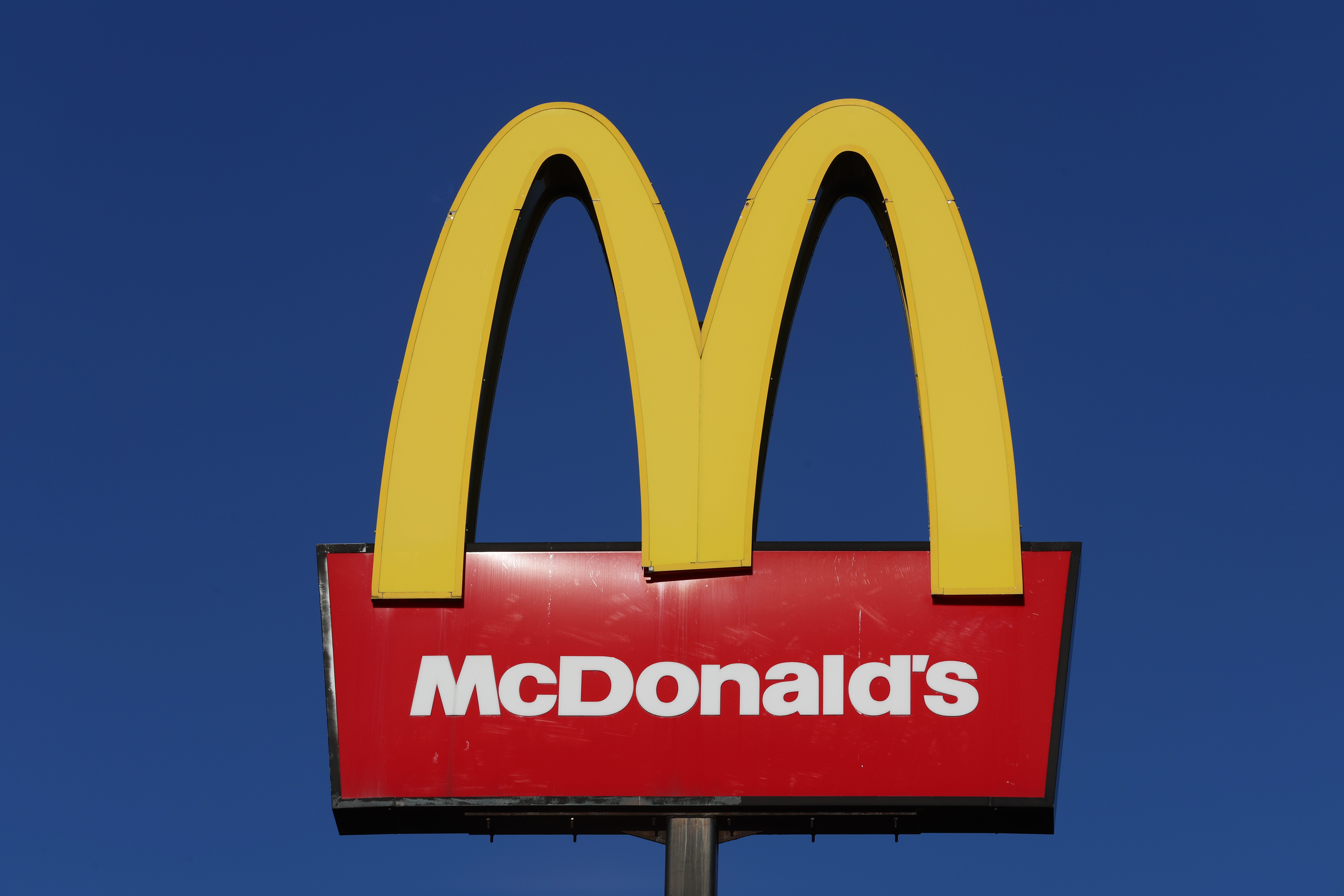The first coronavirus vaccination in Illinois outside of Chicago will be administered Tuesday at a hospital in Peoria with Gov. J.B. Pritzker and the state's top health official observing.
Health care workers at OSF St. Francis Medical Center, located at 1306 North Berkeley Avenue in Peoria will be the first in the state's jurisdiction to receive the COVID-19 vaccine, beginning at 11 a.m.
Pritzker and Illinois Department of Public Health Director Dr. Ngozi Ezike will be present to observe the vaccinations, which can be watched live in the video player above, as can their press availability immediately following.
In Chicago, the first doses will be given at 10:30 a.m. to health care workers at Loretto Hospital, located at 645 S. Central Ave., according to the Chicago Department of Public Health.
Hospitals in Chicago and across Illinois have been preparing to receive and administer the first doses to health care workers on the front lines of the pandemic after the U.S. Food and Drug Administration approved emergency use of Pfizer's vaccine last week.
The first shipment of Pfizer's vaccine arrived in Illinois on Monday, with thousands of doses now being processed to go to hospitals across the state, Pritzker said.
"I'm proud to report that Illinois’ first vaccine doses have arrived safely and are now being processed to go to our hospitals," Pritzker tweeted just after 1 p.m. on Monday "I was elated to witness our first shipment arrive at the Illinois Strategic National Stockpile and have great appreciation to those who made it possible."
Local
Pritzker's office said the first shipment, delivered to the Illinois Strategic National Stockpile, contained approximately 43,000 doses of the vaccine.
Illinois officials said Chicago received a shipment from the federal government on Monday as well, one of five local health departments to receive direct shipments independent of the state.
The four others include: Cook County Department of Public Health, Lake County Health Department and Community Health Center, Madison County Health Department, and St. Clair County Health Department.
Together, the six shipments account for the state's "expected allocation" of 100,000 doses, Pritzker's office said. That figure is slightly lower than what officials previously estimated would be 109,000 doses, with Chicago receiving 23,000 and 86,000 distributed around the rest of the state.
The Pfizer vaccine requires two shots given three weeks apart.
The first of many freezer-packed COVID-19 vaccine vials began to make their way to distribution sites across the United States on Sunday, as the nation approached a death toll of 300,000 lives lost since the pandemic began.
The rollout of the Pfizer vaccine, the first to be approved by the FDA, ushers in the biggest vaccination effort in U.S. history — one that health officials hope the American public will embrace, even as some have voiced initial skepticism or worry. Shots were given to health care workers and nursing home residents in the U.S. beginning Monday.
Rush University Medical Center is anticipating the arrival of up to 2,000 doses of the vaccine, transforming a portion of its Chicago hospital into a mass vaccination area. Frontline workers at the hospital received an email Friday about when they'll receive their first and second shots.
"I think there is an element of excitement," said Meeta Shah, an emergency physician at Rush. "I think it's a combination of feelings. It's like a little bit of hopefulness, a little bit of excitement."
"It's kind of this surreal optimism, you know after months of feeling down and a sense of despair," Shah said. "This is kind of like that sliver of hope."
Still, health officials have repeatedly emphasized that the arrival of the vaccines doesn’t mean people can let their guard down.
"We still need to be mindful that while people are getting vaccinated that we still should be masking up and social distancing when we can," said Carol Williams, an intensive care unit nurse at Rush Copley Medical Center.
"I have a glimmer of hope, so do a lot of my coworkers that as this process proceeds that hopefully we're going to have this under control," Williams said.
Even though Williams is excited for the rollout, she knows there's still a lot of work that needs to be done.
"I just hope that people continue to do the right thing for everybody," she said.
Quick transport is key for the vaccine, especially since this one must be stored at extremely low temperatures — about 94 degrees below zero. Early Sunday, workers at Pfizer — dressed in fluorescent yellow clothing, hard hats and gloves — wasted no time as they packed vials into boxes.
They scanned the packages and then placed them into freezer cases with dry ice. The vaccines were then taken from Pfizer's Portage, Michigan, facility to Gerald R. Ford International Airport in Grand Rapids, where the first cargo plane took off amid what airport officials called a “jubilant” mood.
Tracked with GPS-enabled sensors, the initial shipments were expected to contain about 3 million doses, with many more to come. Federal officials say the first shipments of Pfizer’s vaccine will be staggered, arriving in 145 distribution centers Monday, with another 425 sites getting shipments Tuesday, and the remaining 66 on Wednesday.
Doses of the vaccine, co-developed by German partner BioNTech, are given out based on each state’s adult population. Then the states decide where they go first.
Earlier this month, Pritzker and Illinois health officials detailed the state's vaccination plan, noting it follows federal guidelines in distributing it to health care professionals and nursing home residents first in accordance with federal public health guidance.
“The very first vaccinations will be dedicated to hospitals and health care workers in the 50 counties with the highest death rates per capita,” Pritzker said on Dec. 4 during his daily COVID-19 briefing in Chicago. “Some quick math will tell you that it’s going to take multiple weeks of distribution to even get our health care workers their first of the two doses that they require, while also getting to the long-term care facility residents.”
According to Pritzker, each county has put together its own plan for how the vaccine will be distributed, with the governor pointed out that cities like Chicago and more rural communities will have different strategies in place to ensure that the vaccine is distributed as equitably as possible.
Illinois' public health director said Friday all of the state's 10 "regional hub" hospitals will receive doses of Pfizer's COVID-19 vaccine to distribute in week one.
Once the doses have been received, Ezike said that the state will pull out all the stops in an “All-In Illinois” effort to make sure that the vaccine is administered as quickly and efficiently as possible.
“People will go to their doctor’s offices. Mass vaccination drives will be held. Some in churches, pharmacies, local health departments,” she said. “There will be myriad opportunities to get the vaccine. We want some drive-thru vaccination efforts too. Those will continue to ramp up as it becomes widely available to the public.”
In Chicago, first in line will be "health care workers who treat COVID patients or conduct procedures that put them at high risk for COVID-19 spread" at all 34 hospitals in Chicago, Lightfoot and Arwady said last week.
Chicago health officials said there are roughly 400,000 health care workers in the city, including doctors, nurses and other hospital staff.
After frontline health care workers, the city says priority will be given to: residents and staff at long-term care facilities, workers in essential and critical industries including emergency services personnel, people at high risk for severe COVID-19 illness due to underlying medical conditions and people ages 65 and older.



